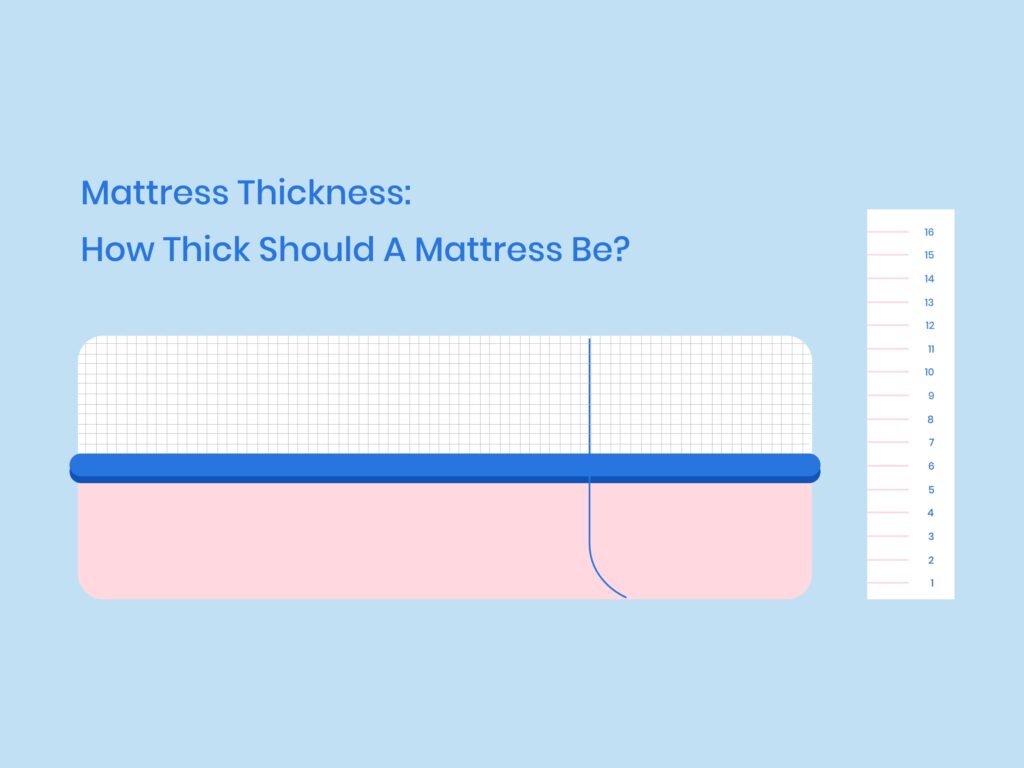Are you trying to determine how thick mattresses are? Mattresses come in a variety of thicknesses, so it can be difficult to know which one is right for you. In this article, we’ll discuss what you need to know about how thick mattresses are and how to choose the one that’s best for you. We’ll cover topics such as mattress thickness, mattress types, and mattress sizes. Read on to gain a better understanding of how thick mattresses are and how to choose the right one.
What Thickness Memory Foam Mattress Is Best?
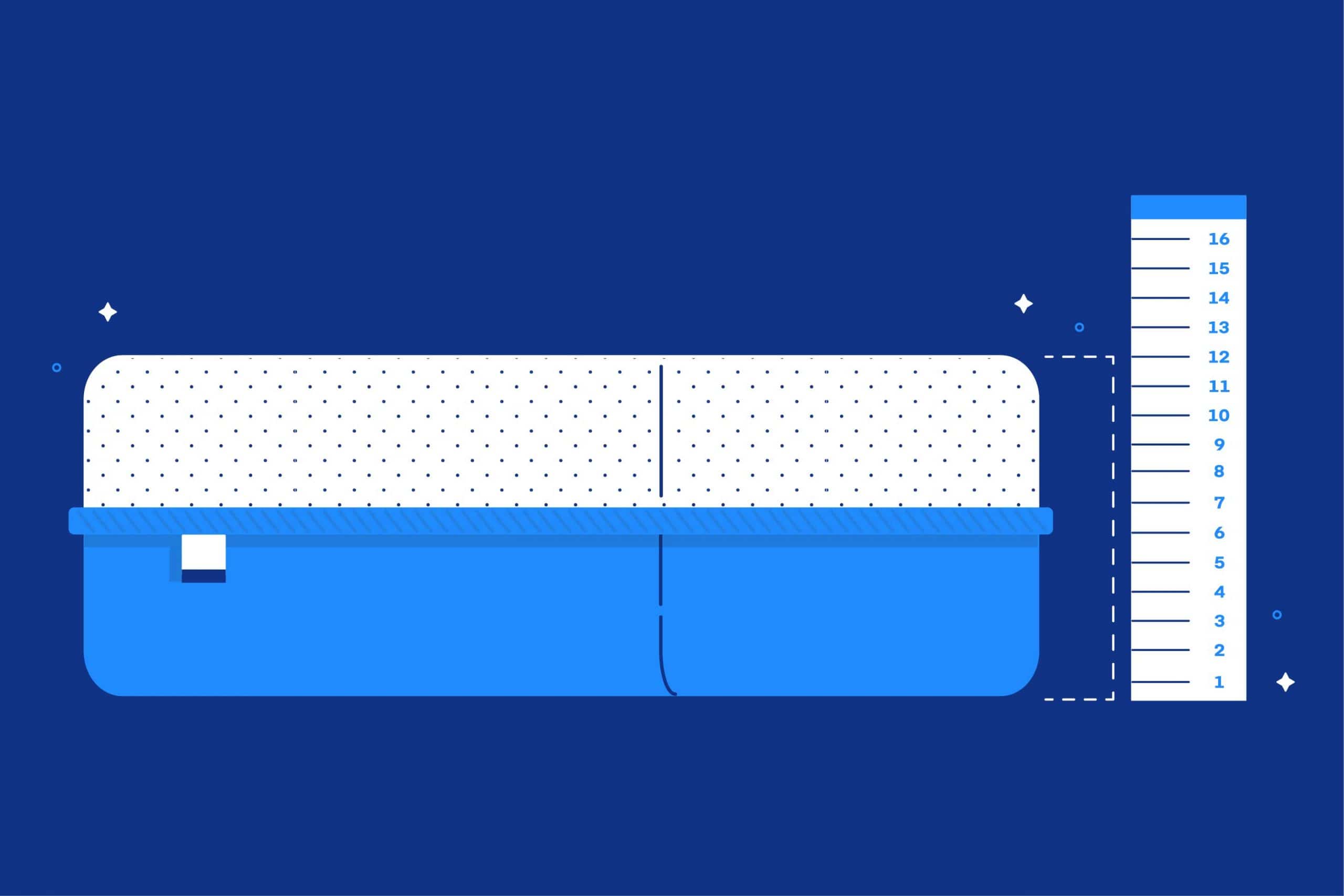
Memory foam mattresses are typically thicker than other mattress types, typically ranging between 8 to 15 inches. The thickness of the mattress is an important factor in providing the necessary comfort, support, and pressure relief.
Thin Memory Foam Mattresses
Thin memory foam mattresses, usually 8 inches thick or less, are best for individuals who are looking for a basic mattress that is both cost-effective and comfortable. These mattresses are ideal for children, lightweight individuals, and those who are looking for a mattress that is easy to move.
Medium-Thick Memory Foam Mattresses
Memory foam mattresses that are 10 to 12 inches thick are ideal for those who are looking for a mattress with better contouring and pressure relief. These mattresses provide more cushioning and support for heavier individuals who need that extra bit of comfort.
Thick Memory Foam Mattresses
Memory foam mattresses that are 13 to 15 inches thick are the best choice for individuals who need maximum cushioning and support. These mattresses provide the deepest contouring and pressure relief, and are ideal for people who suffer from chronic pain or spend a lot of time in bed.
Conclusion
When it comes to finding the right thickness of memory foam mattress, it depends on a variety of factors, including the individual’s sleeping style, body weight, and health concerns. Those who are looking for a mattress that provides good comfort, support, and pressure relief should opt for a memory foam mattress that is 10 to 15 inches thick.
How Thick Is a Standard Mattress?
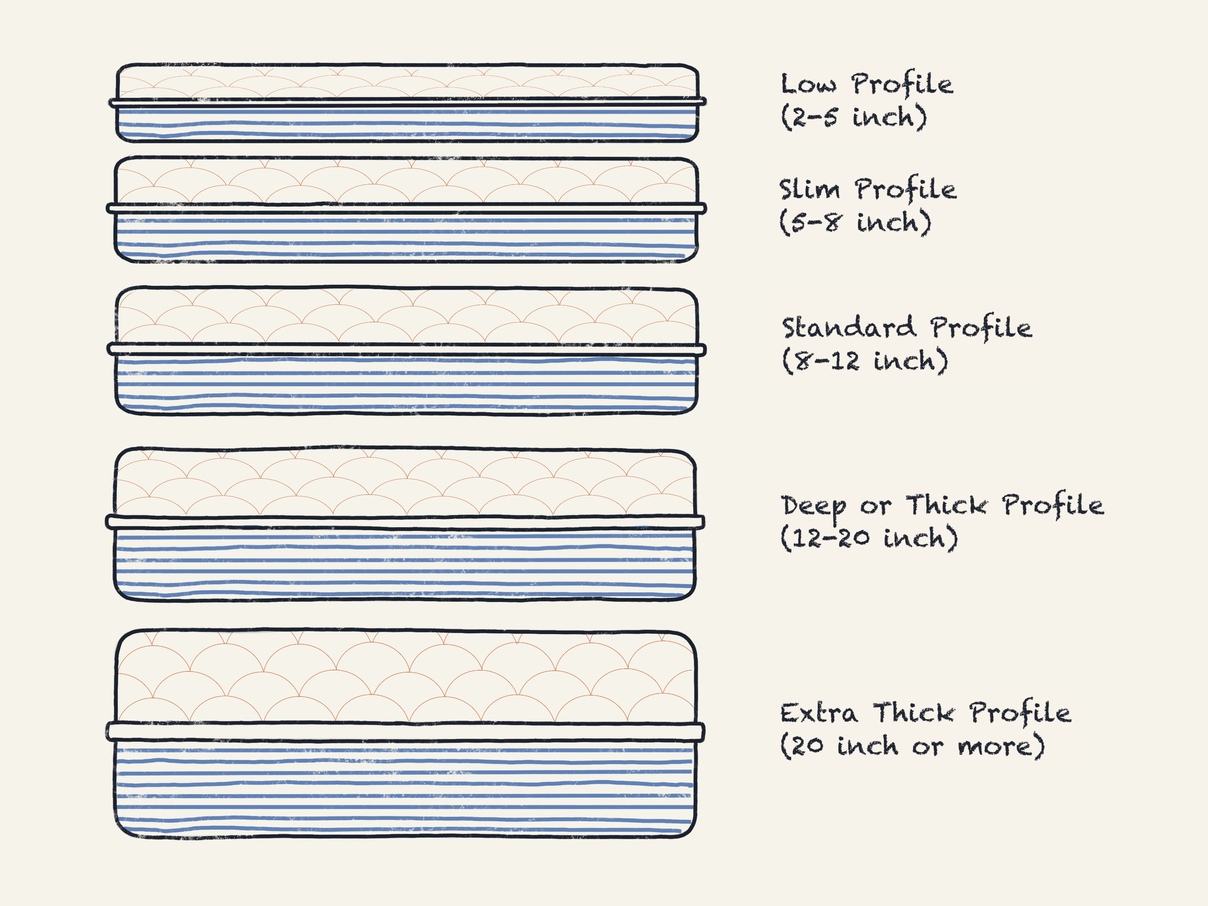
The standard mattress thickness is typically between 8 and 12 inches. The ideal thickness for a mattress will vary depending on the user’s body type and sleeping habits. Generally, a mattress should be between 8 and 10 inches thick for a single person, while a couple may want a mattress of 11 or 12 inches. For people who share a bed, a mattress of 12 inches or more is recommended for optimal support and comfort.
Mattresses that are too thin will not offer enough cushioning and support, while those that are too thick can be too firm and uncomfortable. Therefore, it is important to select the correct mattress thickness for your body type and sleeping habits. The thickness of a mattress should also be taken into consideration when shopping for bedding and bed frames, as the mattress should fit properly in the frame without any gaps or overhang.
When considering how thick a mattress should be, it is important to remember that the mattress must provide adequate support and cushioning to keep the spine aligned and the body comfortable throughout the night. People who prefer a softer mattress should look for one that is 8 to 10 inches thick, while those who prefer a firmer mattress should choose one that is 11 or 12 inches thick.
Ultimately, the best mattress thickness for each individual will depend on their body type, sleeping habits, and preferences. It is important to try out different mattresses in-store to find the ideal thickness that offers the right support and comfort level.
What Is Standard Mattress Thickness?
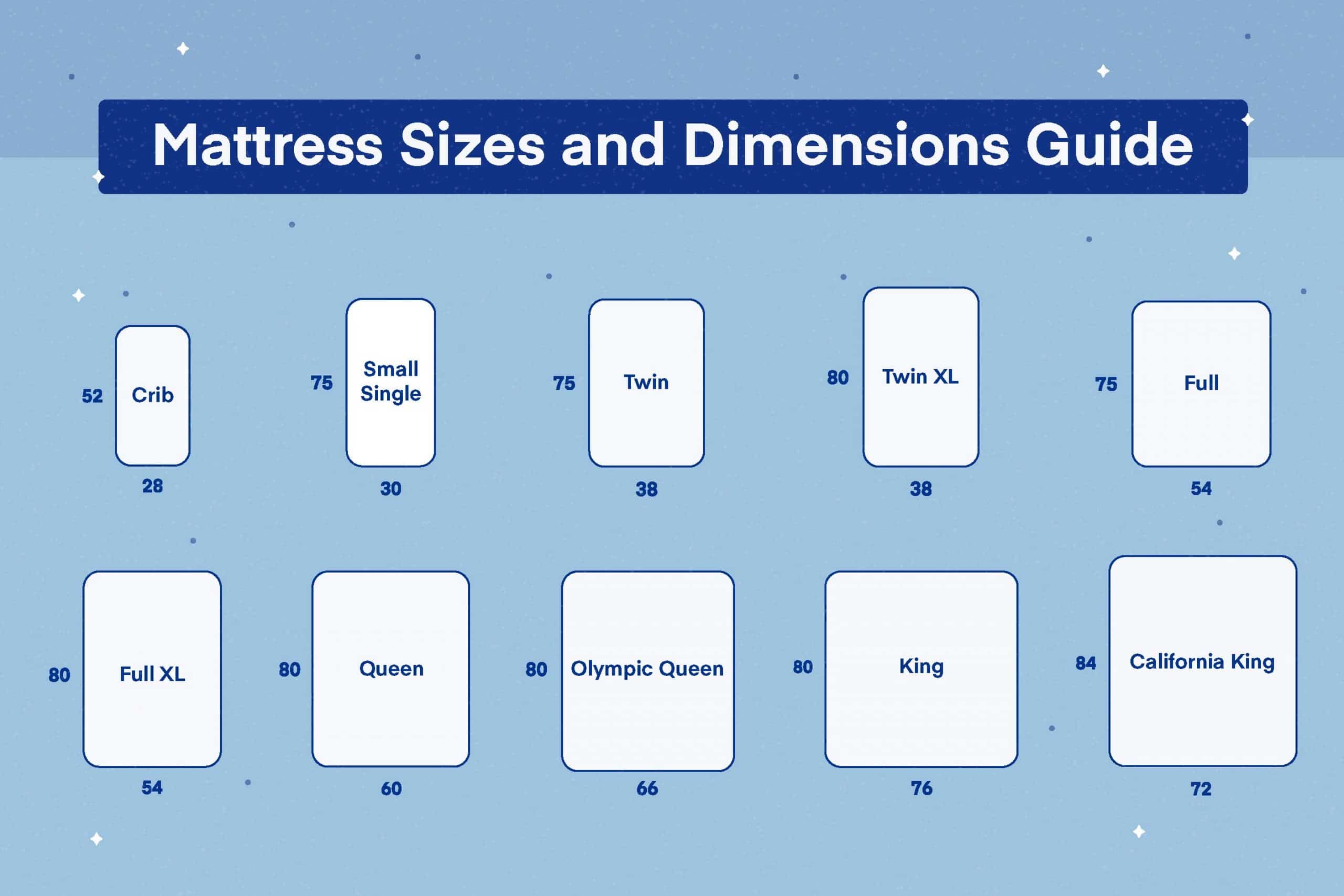
Mattress thickness is an important factor to consider when looking for a new mattress. It affects your comfort, the amount of support it provides, and the overall quality of your sleep. Here are some interesting facts about mattress thickness that you should know:
- The average mattress is 8 to 12 inches thick. Most mattress companies offer mattresses in this range, with the most popular being 10 inches. This thickness is suitable for most sleepers, providing adequate support and comfort.
- Thicker mattresses are suitable for heavier people. If you are overweight or suffer from chronic pain, a thicker mattress will provide more support and last longer. Look for mattresses that are 14 to 16 inches thick.
- Thinner mattresses are more suitable for lighter people. If you are light and you want a more comfortable sleep, a thinner mattress may be a better choice. Look for mattresses that are 8 to 10 inches thick.
- The thickness of the mattress affects the price. Generally, the thicker the mattress, the more expensive it is. Thinner mattresses are usually more affordable.
- The thickness of the mattress affects the size of the bed frame. Thicker mattresses require larger bed frames, so make sure to double-check your bed frame size before buying a mattress.
When shopping for a mattress, it’s important to consider the thickness. The standard mattress thickness is 8 to 12 inches, which is suitable for most sleepers. However, for heavier people, thicker mattresses are recommended, and for lighter people, thinner mattresses may be a better choice. The thickness of the mattress affects the price, as well as the size of the bed frame.
How Thick Should Memory Foam Mattress Be?
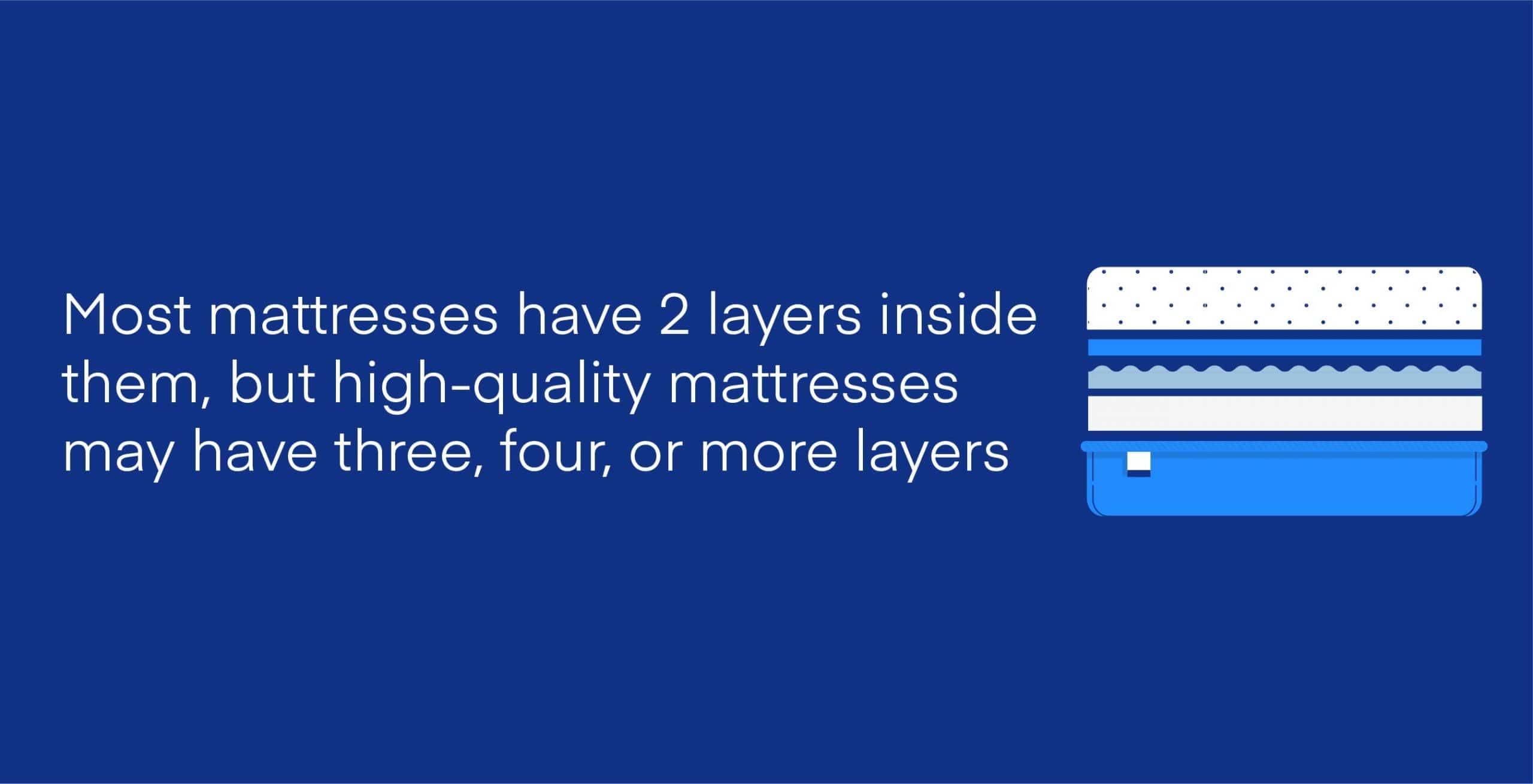
Memory foam mattresses are becoming increasingly popular among those who want to experience the best comfort and support for their body. But how thick should a memory foam mattress be? The thickness of a memory foam mattress can vary depending on a range of factors, but generally, it should be between 8-14 inches.
Thickness for Comfort: Generally, the thicker a mattress is, the more comfortable it will be. Memory foam mattresses tend to provide superior comfort and support, so a thicker mattress is usually recommended. The additional layer of foam helps to provide additional cushioning and support, which can help to provide a more restful night’s sleep.
Thickness for Durability: A thicker mattress will also be more durable and able to withstand more wear and tear over time. Memory foam mattresses are already known for their durability, but a thicker mattress will be more able to withstand the weight and pressure of regular use.
Thickness for Support: A thicker memory foam mattress will also provide better support for your body, especially if you have back or joint pain. The additional layer of foam helps to provide additional cushioning and support, so that your body is able to remain in a comfortable position throughout the night.
| Thickness (in.) | Durability | Support | Comfort |
|---|---|---|---|
| 8 | Good | Good | Good |
| 10 | Very Good | Very Good | Very Good |
| 12 | Excellent | Excellent | Excellent |
| 14 | Excellent | Excellent | Excellent |
In conclusion, when it comes to buying a memory foam mattress, the ideal thickness is between 8-14 inches. This range provides the perfect balance of comfort, support, and durability which can help you get the best night’s sleep possible.
What Is the Thickest Mattress?
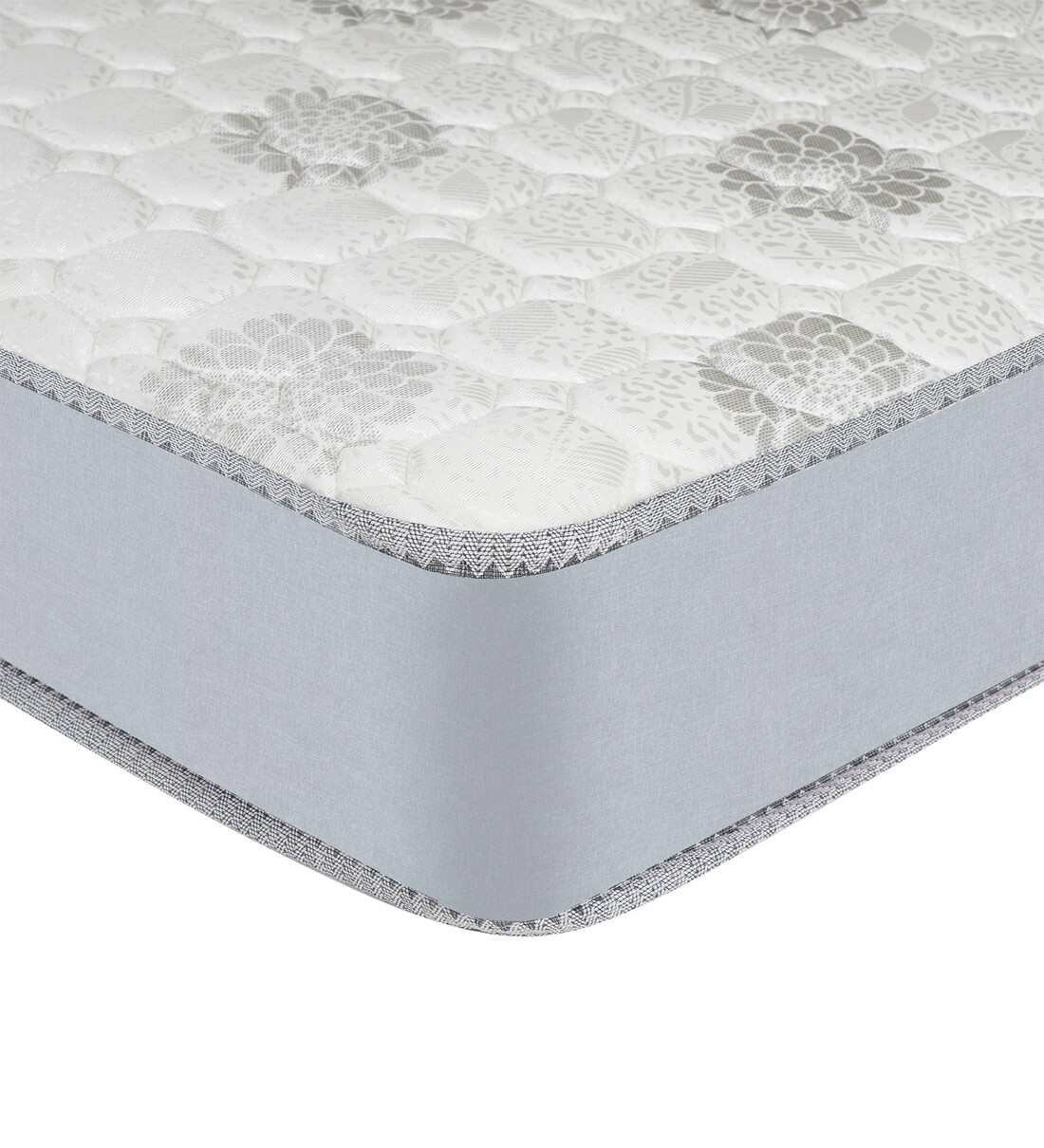
The thickness of a mattress is measured in a unit of measure known as ‘the gauge’, which is usually between 8 and 22. The higher the gauge, the thicker the mattress will be. The thickest mattress available is usually around 22 gauge, which is approximately 12 inches thick.
When considering mattresses, it is important to remember that thicker does not necessarily mean better. Mattresses of different thicknesses have different benefits, and it is best to choose one that is suited to your individual needs.
| Gauge | Mattress Thickness |
|---|---|
| 8 | 6 inches |
| 9 | 6.5 inches |
| 10 | 7 inches |
| 11 | 7.5 inches |
| 12 | 8 inches |
| 13 | 9 inches |
| 14 | 9.5 inches |
| 15 | 10 inches |
| 16 | 10.5 inches |
| 17 | 11 inches |
| 18 | 11.5 inches |
| 19 | 12 inches |
| 20 | 12.5 inches |
| 21 | 13 inches |
| 22 | 13.5 inches |
The thickness of a mattress greatly affects the comfort and support it offers, and it is important to choose a mattress that is thick enough to provide the support you need. The thicker the mattress, the more support it will offer, although it is important to ensure that the mattress is not too thick, as this can lead to discomfort.
How Deep Are Mattresses?
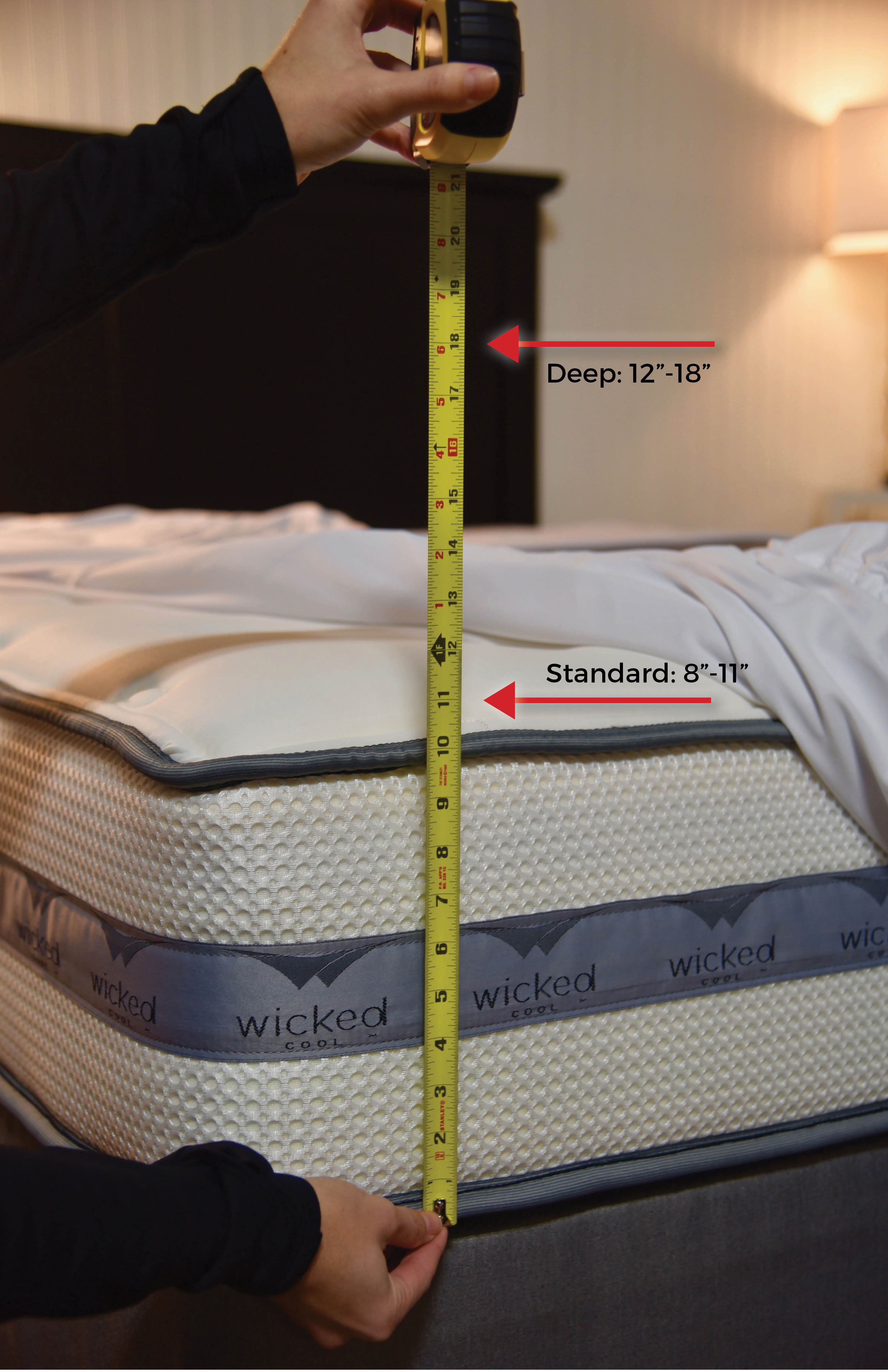
Mattresses come in a variety of depths and thicknesses, ranging from 6” to 18” deep. The depth of a mattress affects the overall support and comfort level, as well as the height of the bed. The most common mattress depths are 10” and 12”, with 14” and 18” models becoming more widely available.
6” Mattresses
6” mattresses are usually considered the “low-profile” models, and are typically best suited for children’s beds, bunk beds, and trundle beds. They provide minimal cushioning and support, but may be an economical choice for tight spaces or when cost is a consideration.
10” Mattresses
10” mattresses are considered the “standard” depth and are suitable for most adults. They provide a good balance of comfort and support, and are often the most affordable option.
12” Mattresses
12” mattresses are considered the “luxury” depth, and provide more cushioning and support than 10” models. They are usually the best option for side sleepers and those who require more cushioning and support.
14” and 18” Mattresses
14” and 18” mattresses are the thickest models available, providing the most cushioning and support. They are ideal for those who need extra cushioning and support, as well as those who prefer a higher bed.
No matter how deep the mattress is, it is important to choose one that is comfortable and provides the right amount of support. The best way to determine how deep a mattress should be is to try it out in the store and gauge how it feels.
Benefits of Different Mattress Thicknesses
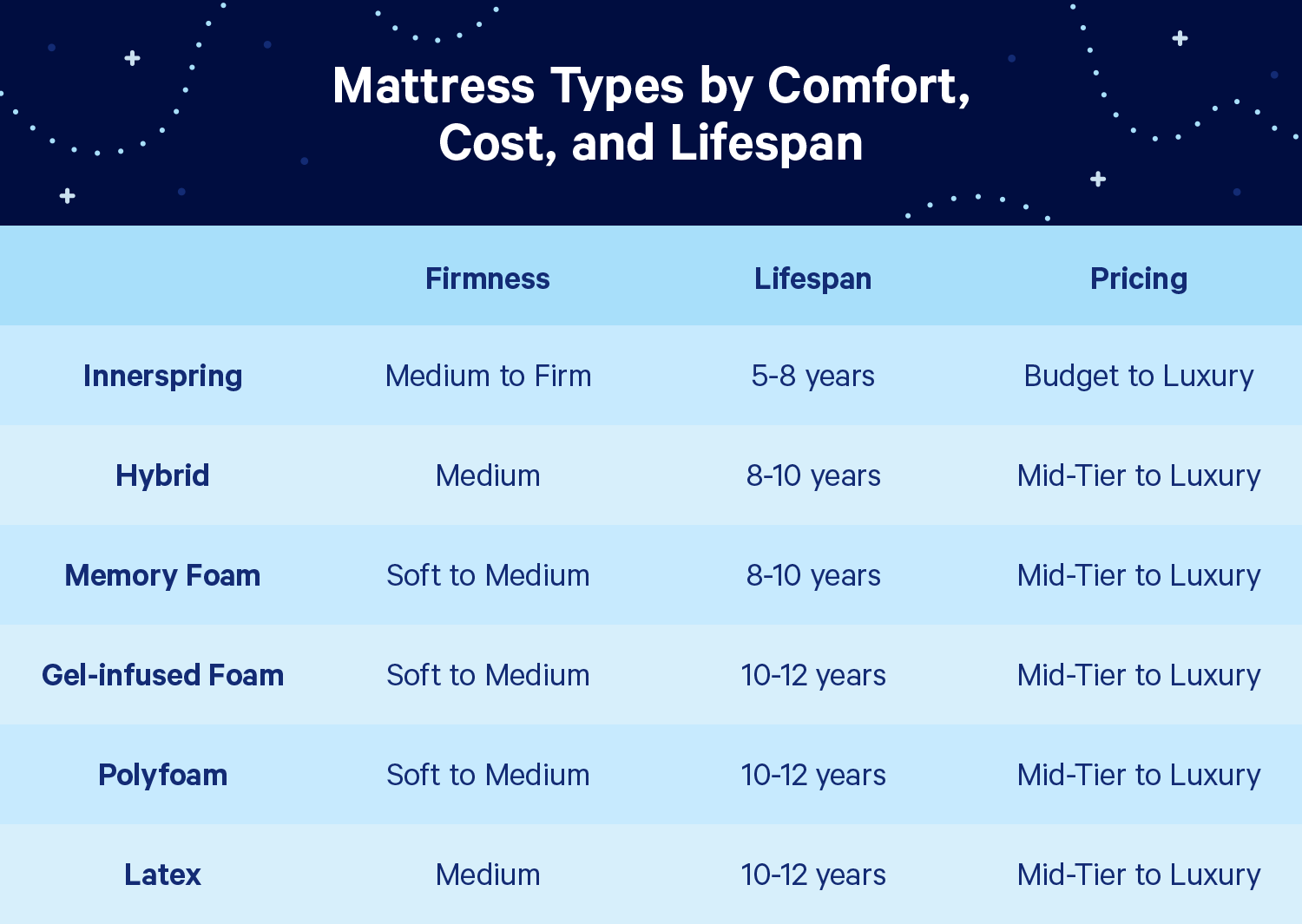
Different mattress thicknesses offer a variety of benefits, including:
Comfort: Thicker mattresses are generally more comfortable because they provide more cushioning and support due to their increased depth. They also provide better pressure relief and can help alleviate back pain.
Durability: Thicker mattresses tend to be more durable because they have more padding and support layers. This means they can withstand more wear and tear and last longer than thinner mattresses.
Heat Retention: Thicker mattresses can also retain more heat, which is beneficial for those who tend to get cold at night and want to stay warm.
Price: Thinner mattresses tend to be more affordable than thicker mattresses, so they are a good choice if you are on a budget.
Space: Thinner mattresses can be a great choice for smaller bedrooms or for those who want to maximize their space. They also tend to be lighter and easier to move.
Motion Isolation: Thicker mattresses can provide better motion isolation than thinner mattresses, as they are better at absorbing movement and reducing noise. This is especially important for couples who share a bed.
Weight Capacity: Thicker mattresses are usually better at supporting heavier weights, making them a good choice for those who are overweight or obese.
Factors to Consider When Choosing Mattress Thickness
When selecting a mattress, it’s important to consider how thick it should be. The thickness of a mattress will affect its comfort, support, and overall quality. Different sleeping styles and body types require different levels of support, so it’s important to choose the mattress thickness that’s right for you. Here are some factors to consider when choosing a mattress thickness:
Sleeping Style: Depending on your sleep style, you may require a thicker or thinner mattress for optimal comfort. If you are a stomach sleeper, for example, a thinner mattress may provide the best support for your lower back. On the other hand, side sleepers may benefit from a thicker mattress that can provide cushioning for the hips and shoulders.
Body Type: Your body type can also factor into your mattress selection. Heavier individuals may require a thicker mattress to provide the support they need. Lighter individuals, on the other hand, may benefit from a thinner mattress that won’t put too much pressure on their body.
Memory Foam: Memory foam is a popular mattress option and comes in varying thicknesses. Generally, the thicker the memory foam mattress, the more pressure relief it offers. You can also find memory foam mattresses with different layers of foam, providing extra support and comfort.
Standard Mattress Thickness: The standard mattress thickness is usually 9-12 inches. This thickness is suitable for most sleepers, providing a good balance of comfort and support.
Thickest Mattress: The thickest mattress available is usually 14-18 inches. This mattress is designed for people who require extra cushioning, such as those who are heavier or side sleepers.
Mattress Depth: In addition to mattress thickness, you should also consider the depth of the mattress. Mattress depth refers to the height of the mattress from the floor and can range from 6-18 inches.
When choosing a mattress, it’s important to consider your sleeping style, body type, and the type of mattress you’re looking for. Knowing the different factors to consider when selecting mattress thickness can help you choose the right one for your needs.
Frequently Asked Questions
What is the Best Thickness for a Mattress?
The best mattress thickness for an individual depends on their sleep position, body type, and personal preferences. Generally speaking, the thicker the mattress, the more support it will provide. However, a mattress that is too thick can lead to back pain and create an uncomfortable sleep surface. For side sleepers, a mattress that is 8-12 inches thick is ideal, while back sleepers can benefit from a mattress that is 10-14 inches thick. Stomach sleepers should look for a mattress that is 8-10 inches thick. A mattress that is too thick can cause discomfort in the hips and shoulders, while a mattress that is too thin won’t provide enough support. Ultimately, the best mattress thickness for each individual is based on their own needs and preferences.
Are Thicker Mattresses Always Better?
Thicker mattresses may provide more comfort and support than thinner mattresses, but that is not always the case—it really depends on personal preferences. Thicker mattresses can provide better contouring, temperature regulation, and motion isolation; however, they can also be too firm and heavy. People who are lighter in weight may find a thicker mattress too firm, while those who are heavier may find a thinner mattress too soft. Ultimately, the best mattress thickness for any individual will depend on their body weight, sleep position, and personal preferences.
Does Mattress Thickness Change With Size?
Yes, mattress thickness varies depending on the size of the mattress. Generally speaking, larger mattresses are thicker than smaller ones. This is because larger mattresses require more material to fill up their extra space. Here is what you need to know about mattress thickness and size:
- Twin mattresses are typically 6 to 8 inches thick.
- Full mattresses are typically 8 to 10 inches thick.
- Queen mattresses are typically 10 to 12 inches thick.
- King mattresses are typically 12 to 14 inches thick.
- California king mattresses are typically 12 to 14 inches thick.
When shopping for a mattress, make sure to pay attention to the thickness. A thicker mattress is typically more comfortable and supportive than a thinner one. However, keep in mind that a thicker mattress is also heavier and may be more difficult to move. Additionally, if you are trying to fit your mattress into a tight space, a thicker mattress may not be ideal.
Are There Benefits to Using a Thinner Mattress?
- Cost: Thinner mattresses are typically cheaper than thicker ones.
- Weight: Thinner mattresses are lighter, making them easier to move or adjust.
- Temperature regulation: Thinner mattresses allow for better air circulation, which can help keep you cooler while sleeping.
- Ease of assembly: Thinner mattresses are easier to move and assemble, which can be helpful if you need to change the arrangement of your bedroom frequently.
- Storage: Thinner mattresses are easier to store and can save you space in smaller bedrooms.
Is there a difference between the thickness of spring mattresses and foam mattresses?
Spring Mattresses
- Spring mattresses come in a variety of thicknesses, with the most common being 8-10 inches.
- The coils in spring mattresses are designed to provide support and cushioning, which can give them a firmer feel.
- The thicker the mattress, the more coils it contains, which can offer better support and comfort.
Foam Mattresses
- Foam mattresses come in a variety of thicknesses, with the most common being 6-12 inches.
- Foam mattresses are typically softer and more comfortable than spring mattresses.
- The thicker the mattress, the more layers of foam it has, which can offer better support and cushioning.
Conclusion
- Spring mattresses and foam mattresses both come in a variety of thicknesses.
- Spring mattresses tend to be firmer while foam mattresses are softer and more comfortable.
- The thicker the mattress, the more support and cushioning it offers.
Conclusion
Thick mattresses offer many benefits, including better support, better sleep, and improved spinal alignment. Mattresses vary in thickness from 8 to 16 inches, with most people finding that the thicker the mattress, the more comfortable it is. Thick mattresses are ideal for those who are heavier or require more support, while thinner mattresses are better for those who are lighter or have more limited space. Choosing the right mattress thickness is an important decision, so be sure to take the time to research and find the right mattress for you.
